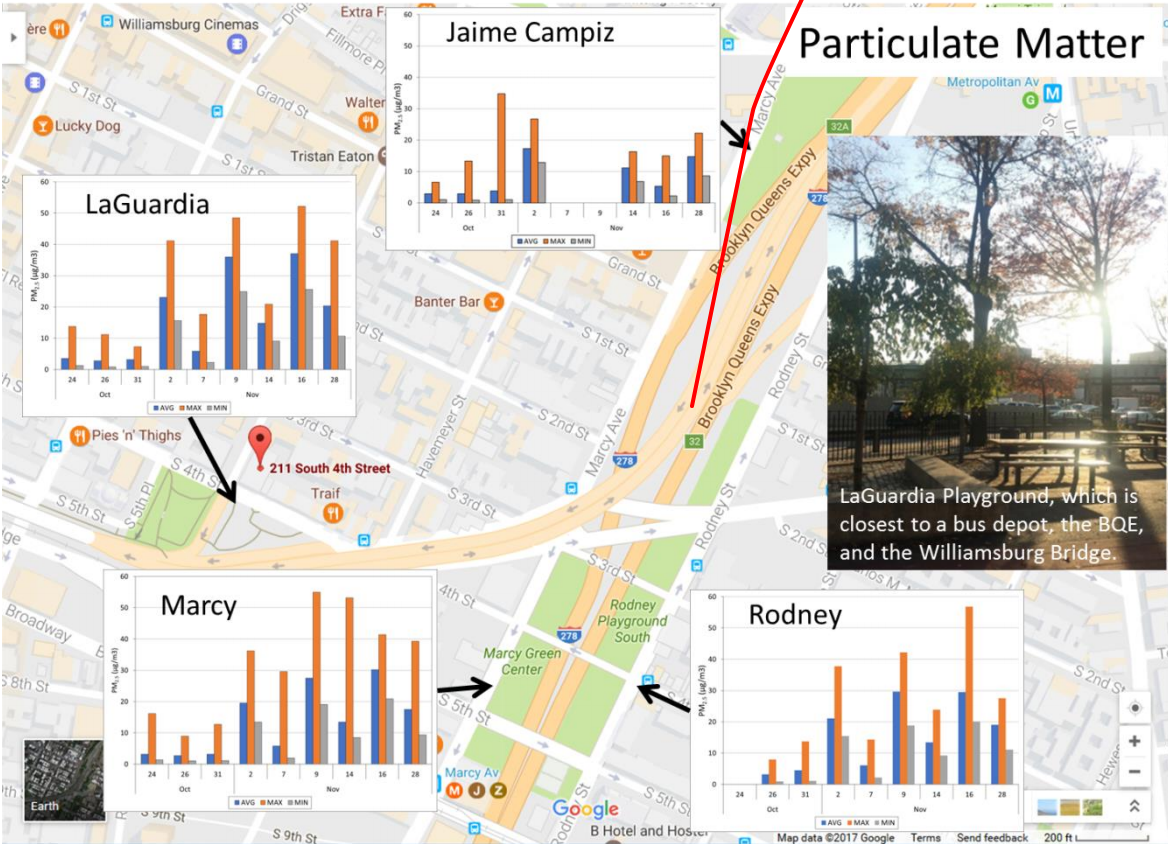This project seeks to understand how climate variability, extremes and changes interact with social dynamics to impact the health of residents in New York City, particularly communities of color and socioeconomically poor populations.
The project took the form of a pilot study that assessed concentrations of urban traffic-related air pollutants (TRAPs) in open/green spaces in Williamsburg, Brooklyn, NY. The study funded by Tishman Environment and Design Center (TEDC) and The New School University fostered a partnership between The New School and El Puente, a local human rights organization located in Brooklyn, New York City. The project builds on previous work by El Puente in the 1990s, which led to local initiatives that addressed asthma disparities and built community health and social capacities, primarily among an underserved Latino subpopulation in the southside section of Williamsburg, known as “Los Sures” by local residents. It also builds on previous work (also funded through TEDC), which developed an urban health framework and a geodatabase of health, social, and environmental data for NYC in order to explore interlinkages between overlapping health problems and the neighborhood-level environmental and social conditions in which they persist.
This pilot study was guided by principles of environmental justice and a community-engaged approach. El Puente’s fundamental principles of creative justice and transformative community building were key guides to this project (http://elpuente.us/twelve-principles). The second key set of principles for the project was the Jemez Principles for Democratic Organizing (https://www.ejnet.org/ej/jemez.pdf). These principles emphasize the importance of working in solidarity and mutuality, letting communities speak for themselves, inclusivity, self-transformation, and building just relationships. The foundation of the model is a co-production framework popularized as “citizen science” and pioneered by environmental justice groups like El Puente in the 1990s. Co-production implies several benefits for participants including epistemological contributions that improve environmental policy and produce practical solutions as well as improving procedural and distributive justice overall. The approach to community-engaged research that influenced this study was the “street science” lens to urban environmental health justice. “Street science” asserts that local participation is meaningful, and critically valuable not only to understand vulnerability and health, but to also provide actionable solutions led by residents who are most affected by inner-city problems.


